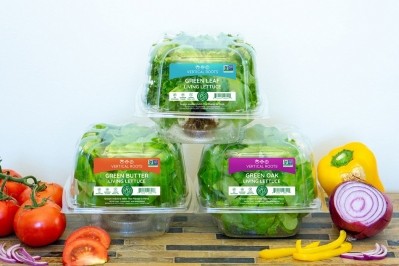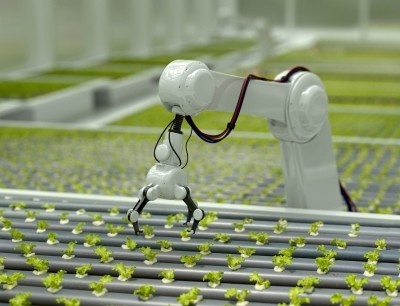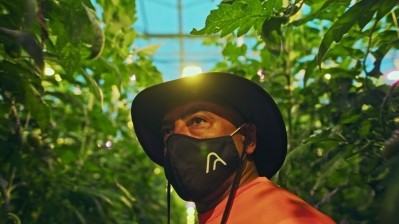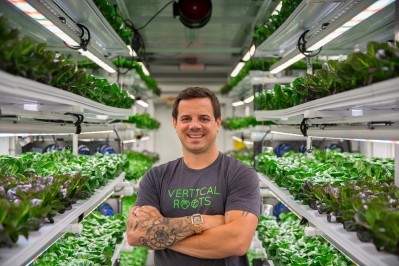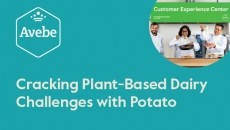AppHarvest acquires Root AI and its 'game-changing' robotic harvester
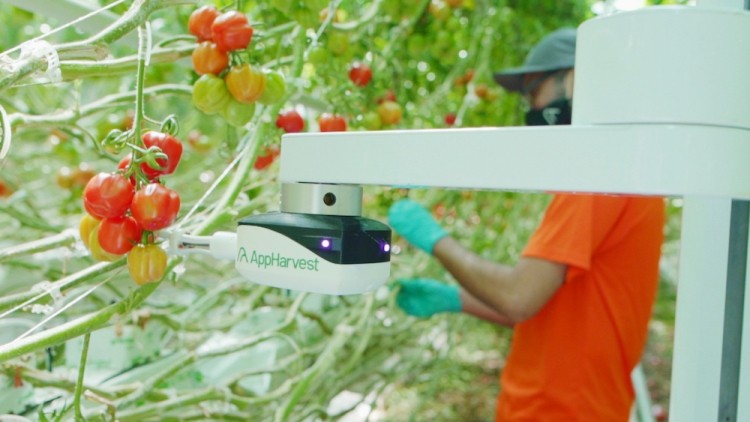
AppHarvest is investing $60m, consisting of $10m in cash and the balance in AppHarvest common shares, to acquire Root AI.
Root AI co-founder and CEO Josh Lessing will become chief technology officer for AppHarvest and will take the lead in development of the indoor farm's robots and their AI capabilities for the network of indoor farms that the company is building. Root AI's other co-founder, Ryan Knopf, will join AppHarvest as vice president of technology.
AppHarvest said the "game-changing advantage" of Root AI's technology is in the data the robots can collect as they harvest. Its robotic technology, called Virgo, can help evaluate crop health, precisely predict yield, and optimize overall operations at its controlled environment agriculture (CEA) facility.
Located in the Appalachia region of Kentucky, AppHarvest has built over 3 million square feet of indoor agricultural space (with two more indoor farms on the way) to hydroponically grow non-GMO, pesticide-free produce using 90% less water than open-field agriculture while producing yields up to 30 times that of traditional agriculture on the same amount of land with zero agricultural runoff, claims the company.
“Farming as we’ve known it is broken because of the increasing number of variables such as extreme weather, droughts, fire, and contamination by animals that make our food system unreliable. Indoor farming solves for many of those challenges, and the data gathered can exponentially deliver more insights that help us predict and control crop quality and yield,” said AppHarvest Founder & CEO Jonathan Webb.
“One of the key challenges in agriculture is accurately predicting yield. Many downstream decisions from work scheduling to transportation to retail planning are based on that. Any deviation between projection and actual yield can result in fire drills for numerous functions to adjust for the change, and AI can help solve for that.”
Virgo: How it works
AppHarvest released its first harvest of indoor-grown tomatoes in January 2021 to regional retailers including Walmart and Kroger.
At the time of the first harvest, Webb noted how the company had plans to grow "just about all fruits and vegetables" at its 60-acre facility.
With the addition of Root AI's Virgo robot, the company has the potential to unlock data efficiencies needed to sustainably grow even more cultivars of vegetables, as Virgo can be configured to identify and harvest multiple crops of varying sizes including tomatoes, peppers, cucumbers, and more delicate fruits such as strawberries.
Virgo, which can operate both indoors and outside, has been focused on the indoor controlled environment agriculture space, where over the past three years it has collected a vast data set of tomato images to enable it to identify more than 50 varieties in multiple growing environments and at varying stages of maturity to learn how and when to harvest, explained Root AI.
The value of the Virgo technology is that it can determine the precise time when a tomato is ready to be picked (by using a set of cameras combined with an infrared laser to generate a 3D color scan of an area and assess the orientation of the tomato). The robots work alongside crop care specialists who are able to focus on more complex tasks in the indoor growing facility.
Similar to a video game, Virgo keeps a record of its harvest success rate and operates based on an internal, built-in feedback mechanism to constantly evaluate its efficiency, according to Root AI.
“A piece of food—whether that’s a tomato or a berry or a cucumber—is an outcome from many variables that are part of the growing process. Enhanced data collection for each plant through the robot can lead to insights that teach us precisely how to design better, more resilient food systems that are reliable and that produce more food with fewer resources,“ said Lessing.
Improving sustainability efforts
Employing Virgo throughout its vertical farming operations allows AppHarvest to execute on its sustainability goals such as detecting and eliminating pests naturally and helping indoor farms successfully grow chemical pesticide-free fruits and vegetables, noted Lessing.
“Joining forces with AppHarvest is a natural fit: we want to ensure a stable, safe supply of the nutritious and healthy food that people should be eating -- grown sustainably -- and doing that at the scale of AppHarvest gives us the opportunity to make the greatest difference."
